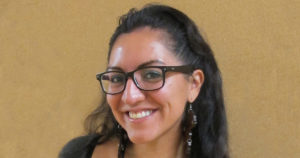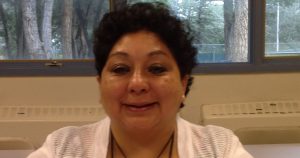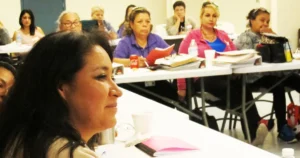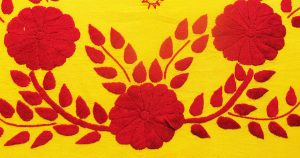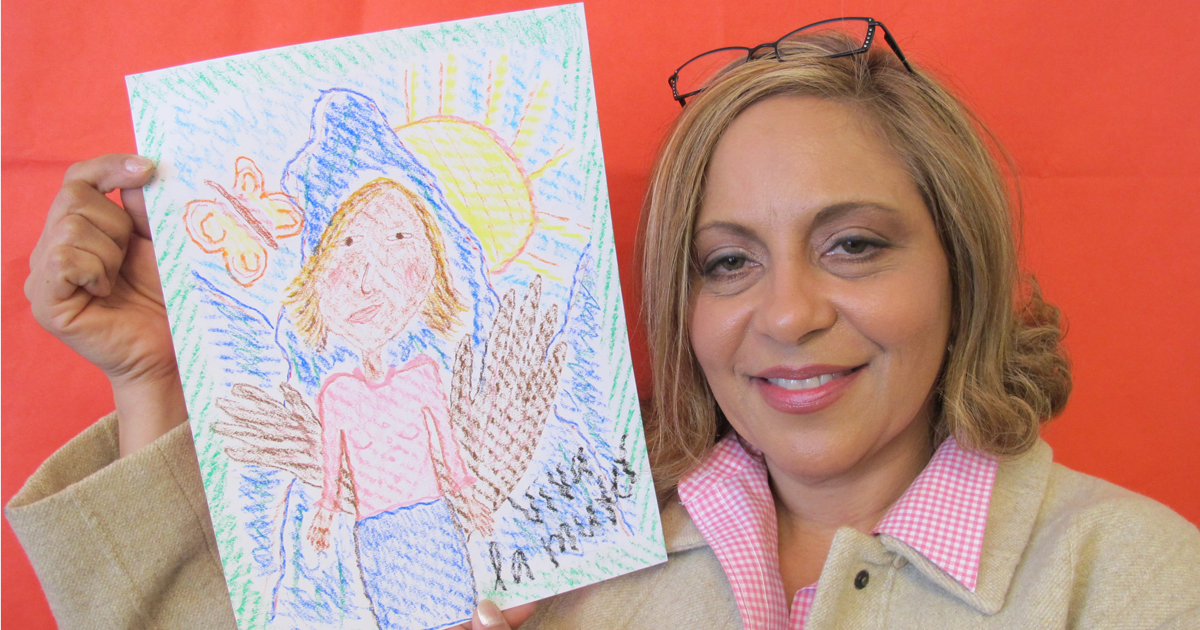
When I left El Salvador and the war behind I tried not to think about or remember the war because I was focused on building a new life in the United States. I devoted myself to working and studying. Then my daughter was born and I devoted myself to her and thought I had left the past behind.
But my daughter grew up and went to the University and, basically, she has taken me back to the beginning of the war. From her very heart’s core she has been interested. She wanted to know what had happened and had begun to study and investigate and ask questions. Through her I have returned to that place that I wanted to forget. There is much trauma, much pain, much spilled blood, and many dead.
“I was young then, yet I remember it as though it happened last night. I even remember the smell of the gunpowder, the rifles, the bombs, the color of people’s blood, the dead on the roadways, my classmates who disappeared and have never, ever been found, the politically disappeared without tombs, who haven’t life. I don’t know where my teachers who were killed are buried.”
I remember doing all my homework in school. For exams, we’d study by candlelight because there was no electricity because of the bombings and we’d not be able to study with classmates. We would each study separately for fear that the soldiers would come to kill us in the middle of the night, for fear that the soldiers would kidnap and rape us as they had kidnapped and raped many others.
Basically, we spent three years in El Salvador during the worst part of the war. We were able to leave and go to the United States. Leaving the country behind made it difficult to keep our family together. I left behind my grandmother. She didn’t want to go. She was too elderly. My three grandparents were left behind and they’ve died and I was never able to see them again. I don’t know where any of them are buried. I left the rest of my family, my house, my things, the world I had known – I left it behind to come to a strange place where we were so full of hope.
It’s so hard when one is newly arrived. I saw a future without bombs, without rifles, without deaths, without kidnappings, without being afraid of the night. Coming to the United States, I thought this will not happen here. It will be different. But the reality is that we have never been welcomed in this country. We are thought to be less of; that we don’t belong. We are attacked. There is racial hatred.
The day we left was full of anxiety. We had great luck in getting our immigration papers and being able to take an airplane which made our arrival very certain. But I remember my last thought as I boarded the plane. It was – I had a doll in my hands and I remember pressing her to me and closing my eyes as I entered the plane. I said, “I’ll never have to see those soldiers with their rifles again. I don’t ever want to return.”
“This was more than thirty years ago and I’ve never returned. I’ve never been able to see my country or my family again. When the plane lifted I was able to see my country, the coast, the trees, the mountains. I thought, “I’ll never return. I’ve left it all behind.” How did this happen? How did the war do this? But I need to return. I would like to see the flowers again, be able to taste the fruit, hear the rain; smell the rain, the bread. Talk, walk in the marketplace. See all the people with the flowers of different hues, feel the air at the beach. I’d like to see that all again.”
Coming here, there was a lot of thinking on that eight hour flight. I did not imagine how transcendent it was. In eight hours we landed in a different place. In a land that is not my land, with a language that is not my language. We arrived in Los Angeles, that was in ’80 and the minute we went through customs they had already changed my name. They had changed it. From Violeta it was changed to Violet. They translated my name and I accepted it no problem because I didn’t think much about it then, but now I do a lot. It basically erased my identity. Now I think how do I get it back? I’ve never really had it because we have been categorized in such a way in El Salvador where we have had the indigenous part of us stolen. Of which we are proud. We’ve been taught that it doesn’t exist and now we struggle to recover that part of our indigenous ancestral heritage that we have, to honor that legacy and maintain it as a living culture and identity. I have been in this country for thirty years. So many things have happened to me here.
My daughter gives me much hope. She has returned the past to me and carried it towards the future, giving me an incredible gift. She reminds me of myself when I first arrived and now my job is to do everything I can so that she can connect back to our ancestors. So that she can carry that memory and talk about the justice that has never been done and fight for that justice. And to see how and in what way those who have died and have been disappeared by that war and from the previous wars, the slaughter of ‘32, can achieve justice and new hope for the people left behind. That the war not be forgotten. That it not be forgotten and, more importantly, that it never be repeated.
Storyteller Violeta told her story at MiHistoria’s Sharing Stories of the Latina Experience in March 2014.


